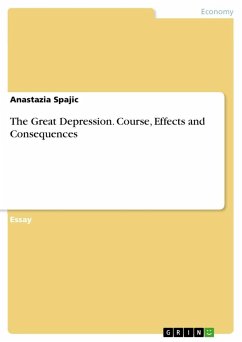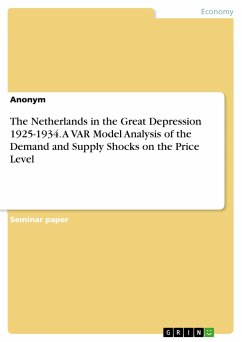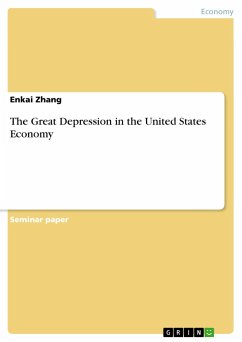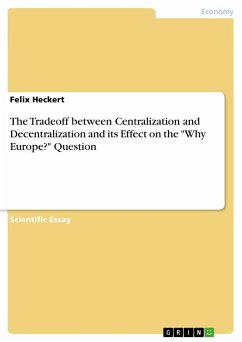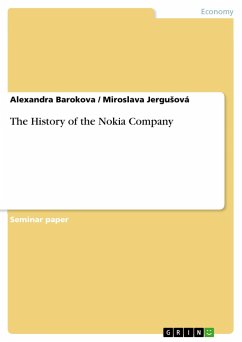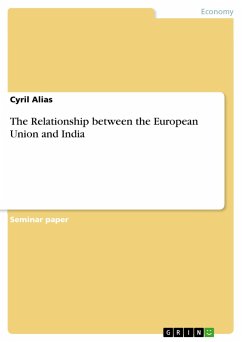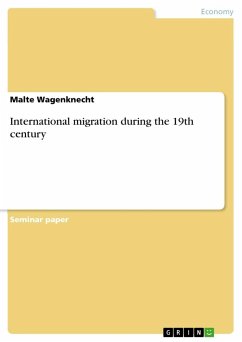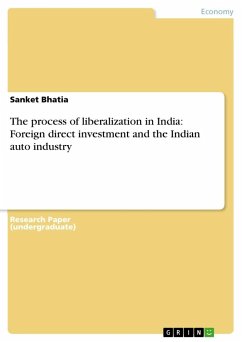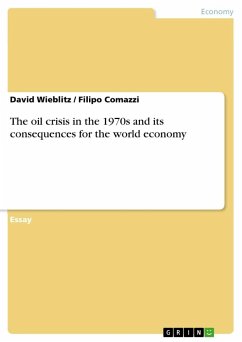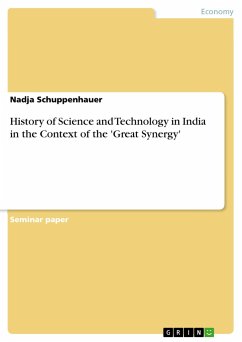
History of Science and Technology in India in the Context of the 'Great Synergy'

PAYBACK Punkte
0 °P sammeln!
Seminar paper from the year 2008 in the subject Business economics - Economic and Social History, grade: 1,0, European University Viadrina Frankfurt (Oder) (Lehrstuhl für Wirtschafts- und Sozialgeschichte der Neuzeit), course: The Great Divergence. History and Legacy of Industrialization in Europe and Asia, language: English, abstract: The purpose of this paper is the discussion of a recent article presented by Joel Mokyrwho offered, according to his own words, a new "variant of the European Miracle question"1.The main thesis of his article The Great Synergy: the European Enlightenment as a f...
Seminar paper from the year 2008 in the subject Business economics - Economic and Social History, grade: 1,0, European University Viadrina Frankfurt (Oder) (Lehrstuhl für Wirtschafts- und Sozialgeschichte der Neuzeit), course: The Great Divergence. History and Legacy of Industrialization in Europe and Asia, language: English, abstract: The purpose of this paper is the discussion of a recent article presented by Joel Mokyrwho offered, according to his own words, a new "variant of the European Miracle question"1.The main thesis of his article The Great Synergy: the European Enlightenment as a factor inModern Economic growth points to the European Enlightenment as being a crucial factor forattaining and establishing modern, i.e. sustainable economic growth in Europe once theBritish Industrial Revolution had overcome its humble beginnings at the end of the eighteenthcentury.Mokyr argues that the stability of economic growth which was reached in Europe after1825 was to a great extent due to a new attitude towards the relation between technology andprogress. This new attitude was the result of a development that had its roots in the EuropeanEnlightenment where the foundations for a new understanding of science and technologywere laid. The outcome of this development was the unique 'idea of research' that madescientists and craftsmen cooperate, giving way to a very fruitful convergence of science andtechnology that helped making sustainable economic growth possible. This evolution mingledwith the modification of institutional mechanisms which was a result of the Enlightenment,too. These two trends both formed a 'Great Synergy' that finally yielded the 'EuropeanMiracle'.To prove and strengthen his thesis, Mokyr compares the history of European scienceswith those practiced in China coming to see that Chinese sciences were confined to andrestricted by the Mandarin rulers, thus a situation similar to pre-enlightened Europe. But hiscomparisons to the Asian continent are limited to the situation in China. It could therefore betelling to have a look at Indian sciences, especially when discovering that India "had a wellestablishedscientific and technological tradition of its own long before being subjected to anextended period of European colonial rule"2. Going deeper into Indian history we will see,that on top of that, before the colonization by the British, "traditional knowledge generatedlarge-scale economic productivity for Indians"3. Departing from these considerations, the present paper will put Mokyr's assumption under inspection examining the Indian history ofscience and technology.The arising problem is thus twofold, implicating questions that are clearly inter-relatedwith each other and which are touching fields both of science and economy.[...]




